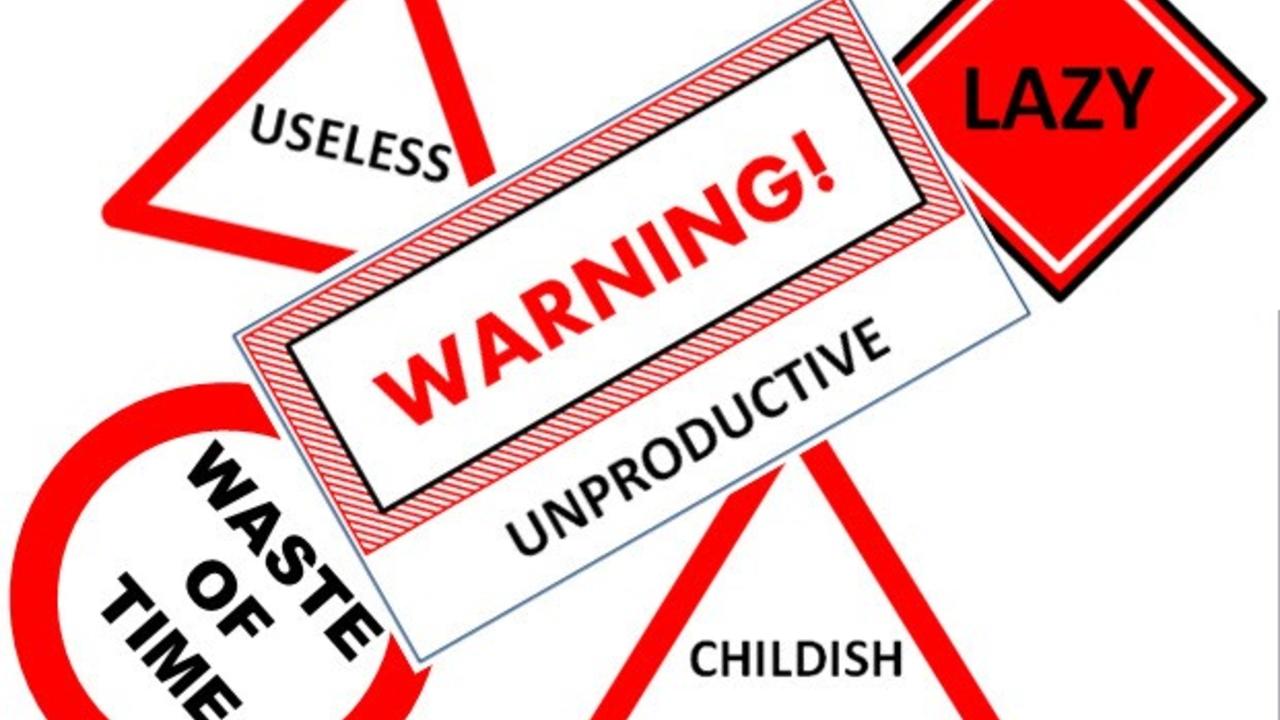Unlocking the Power of Empowerment: A Fresh Take on Leadership Success

In the dynamic world of leadership, mastering empowerment is essential for both new and seasoned leaders aiming to propel their teams to success. This article delves into the lessons from Bob Maksimchuk’s Concepts in Leadership sessions, examining how leaders at various career stages can utilize empowerment to boost team cohesion and drive organizational development.
Defining Empowerment in Modern Leadership
Empowerment in leadership transcends the mere delegation of tasks; it involves instilling confidence and authority in team members to make decisions and take action that aligns with the organization's goals. This process is crucial for nurturing a proactive workforce and cultivating an environment where innovation thrives.
Empowerment Strategies for Emerging Leaders
Emerging leaders often face the challenge of establishing credibility and authority. Empowerment provides a unique opportunity to demonstrate trust and build rapport with team members:
- Develop Emotional Intellige...
Challenging the Status Quo: A Radical Approach to Leadership in Times of Change

In an age where the pace of change is not just fast but often disruptive, the traditional approaches to leadership must be called into question. Can the old guard’s strategies effectively guide us in the modern landscape, or is it time for a new breed of leaders to step up? The insights from Bob Maksimchuk’s Concepts in Leadership sessions prompt a critical examination of how emerging and established leaders navigate change.
The Psychology of Change: A Double-Edged Sword
While it’s widely recognized that we humans resist change due to the “status quo bias,” is this tendency merely a survival instinct, or has it become a convenient excuse for complacency in leadership? The protective instincts that once served as humanity’s lifeline now seem to hinder our progress and innovation. Leaders who cling to outdated methods, believing they are “safe,” might be the biggest impediments to organizational and personal growth.
Upending Traditional Leadership
The question is stark: Should est...
Turn Off Your Autopilot and Embrace the Law of Intentionality

In an era where navigating through life on autopilot seems to be the default setting for many, the concept of intentional living offers a beacon of hope and direction. A recent exploration of John Maxwell’s Law of Intentionality underscores a profound truth: personal growth doesn’t just happen; it requires intention, focus, and deliberate action.
Breaking Free From Autopilot
For many of us, life seems to run on autopilot, with the assumption that experiences accumulated over time equate to genuine growth. This perception, however, is misleading. Growth is not a byproduct of merely existing but a purposeful endeavor that demands our conscious engagement and effort.
The Illusion of Automatic Growth
Exploring the reasons behind the lack of intentional growth, we encounter a range of justifications—from believing it’s not the right time to fears of change and failure. These barriers, though daunting, also highlight our intrinsic resistance to stepping beyond our comfort zones. Overcomi...
Understanding "The Law of the Lid" in Leadership

Few concepts are as pivotal yet often overlooked in leadership and personal development as "The Law of the Lid." This principle posits that an individual's leadership ability is the lid that determines their level of effectiveness and the height of their achievement. Essentially, how well you lead directly influences how much you can achieve.
At its core, "The Law of the Lid" serves as a metaphorical ceiling on our potential. No matter how ambitious or talented we are, our leadership capability caps our growth and the growth of our ventures. This concept, rooted in the belief that leadership can be developed, offers a pathway to breaking through our ceilings.
Why is this law so critical? Consider the direct correlation between leadership effectiveness and organizational success. Businesses, teams, and projects thrive under solid leadership, indicating that improving our leadership skills can profoundly impact our careers and the collective success of the entities we lead.
Howeve...
Will You Open the Gift?

On your desk you find a gift box. The box has a label on it. It says “Contents: Productivity, Creativity, Energy, Emotional Health, Stress Relief, Memory, Better Relationships, Trust”. Then you notice warning labels on the box. Emblazoned in red are labels that say: “Unproductive, Waste of Time, Childish, Frivolous, Lazy, Useless, Worthless”.
As you compare the labels, you find out that the warning labels were put on by your boss, your friends, and your family. Would you heed the red warning labels and return the gift unopened or would you open the gift and claim the contents?
If you opened the box, you would find inside a permission slip that says: “You have permission to play.”
“Play” is different for different people. Play is really a state of mind. It’s how you think about whatever activity you are doing that makes it “play” or not. Generally, all play is a voluntary experience, unstructured, and not necessarily for any specific goal (except fun).
The permission sli...
Appreciation Is Life
I was looking through one of my favorite classic books How to Win Friends & Influence People by Dale Carnegie. I was very fortunate to have had the opportunity to participate in the Dale Carnegie Program and then to be an Associate Instructor. But this time, when looking thorough the book again, I noticed that 3 of the 27 principles that Carnegie discusses all deal with giving appreciation.
I was surprised that I hadn’t noticed it before because two of my favorite quotes center on appreciation. One from Mother Teresa “There is more hunger for love and appreciation in this world than for bread.”
And the other from Robert Cavett “Three billion people on the face of the earth go to bed hungry every night, but four billion people go to bed every night hungry for a simple word of encouragement and recognition.”
Note that these two quotes put both food and appreciation on the same level of significance. Food is critical to life. Without food the body dies. Without appreciation for w...
Go Back to “Normal”?

Through this period of crisis, I have noticed a common thread among my clients and among the businesses that I interact with in my personal life. Even those people who are still working in demanding business environments are becoming aware of something.
Many are still working very hard to service their customers with reduced staff, reduced hours, social distancing, etc. Even while rushing around they often will pause, just for a short additional moment, to interact personally with their customers.
Many others are now working remotely; they are taking note of how their environment (working from home vs. in the office) is affecting them. They find it less stressful with fewer interruptions than they would typically experience, allowing them to focus and be more productive. And they are finding, when interacting virtually, their typically busy meetings are often beginning with a slower and more personal check-in about others’ well-being. And they like it.
Even with all the curren...
The 7 Critical Things Leaders Must Give Their Teams During Times of Crisis

Leaders need to pivot in times of crisis and pivot quickly. Your focus needs to be on getting your people through the difficult times. There are seven critical things you need to give to your teams.
- STRENGTH: You must be strong and steady without bravado or arrogance. People look to their leaders in times of trouble. Remember, you set the tone.
- TRUTH: You must be truthful and acknowledge the problem at hand. Do not minimize or inflate the situation. They need to hear the information you have regarding the crisis. Lack of information and openness breeds fear. Be open and transparent. Share the information you have with them.
- OPENNESS: You must be human. Superheroes are for movies and comic books. By showing your humanity you show your credibility. Tell them how the crisis has impacted you personally. Share your own concerns with them. This demonstrates that you are in this with them.
- EMPATHY: You must express empathy for your team. Show that you understand their situatio ...
Remember, It's Your Time to Lead!

Hello,
Bob and I are delighted to announce the launch of our new blog, It's Your Time to Lead®!
We created this blog to provide you with our insights into leadership to help spark your desire, or continue to feed your leadership learning. We will be sharing our personal and observed leadership experiences (both good and bad). Of course, changing the names to protect the guilty :-).
We look forward to sharing why we feel leadership is a critical component for organizational success and why we feel it’s a crisis for most organizations. As John C. Maxwell, #1 leadership Guru states, "Everything rises and falls on leadership."
It is our desire that this blog will become a place for you to visit frequently and to share your ideas, comments, and feedback. Please take a moment to explore our new blog, bookmark us, or subscribe in order to receive weekly posting updates.
Thank you for letting us join you on your journey!
All the best,
Bill & Bob
Appreciation Is Life

I was recently looking through one of my favorite classic books How to Win Friends & Influence People by Dale Carnegie. I was very fortunate to have had the opportunity to participate in the Dale Carnegie Program and then to be an Associate Instructor. But this time, when looking thorough the book again, I noticed that 3 of the 27 principles that Carnegie discusses all deal with giving appreciation.
I was surprised that I hadn’t noticed it before because two of my favorite quotes center on appreciation. One from Mother Teresa “There is more hunger for love and appreciation in this world than for bread.”
And the other from Robert Cavett “Three billion people on the face of the earth go to bed hungry every night, but four billion people go to bed every night hungry for a simple word of encouragement and recognition.”
Note that these two quotes put both food and appreciation on the same level of significance. Food is critical to life. Without food the body dies. Without apprecia...

